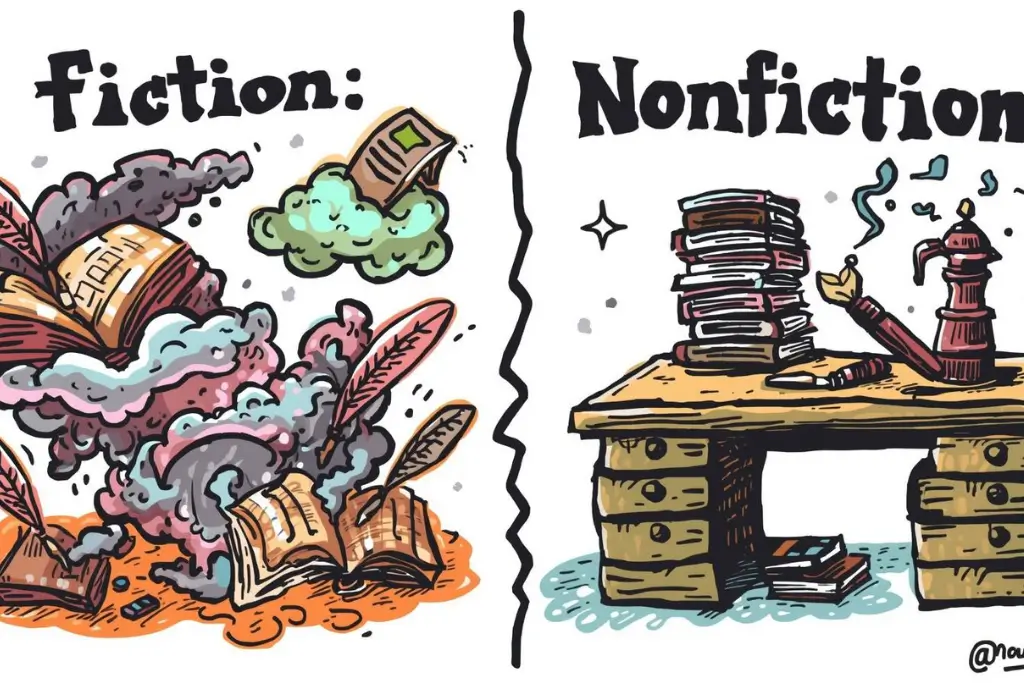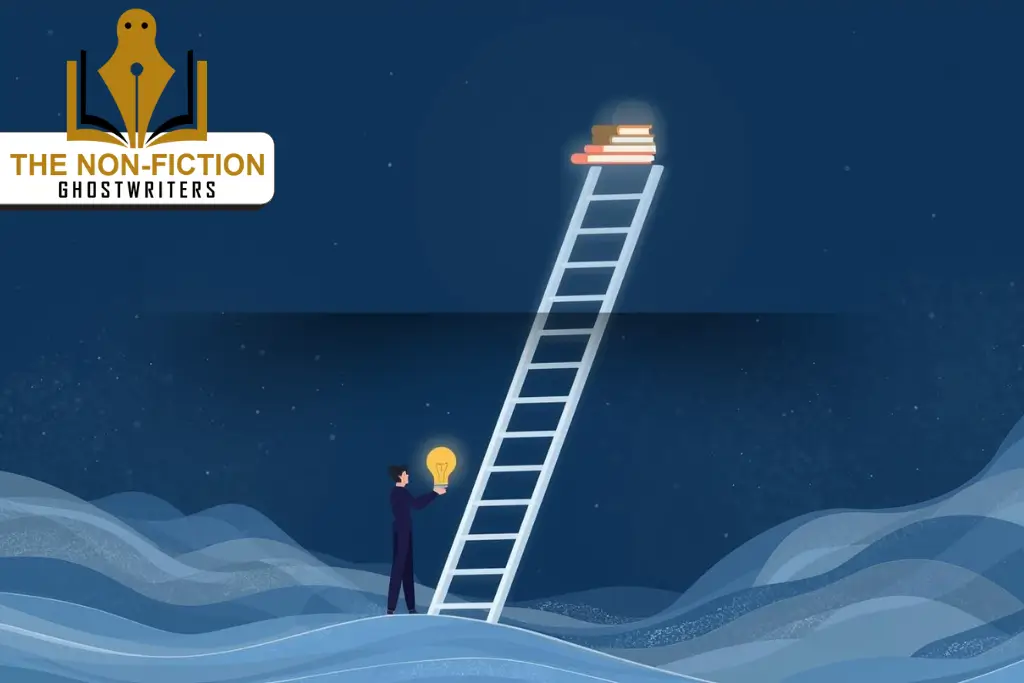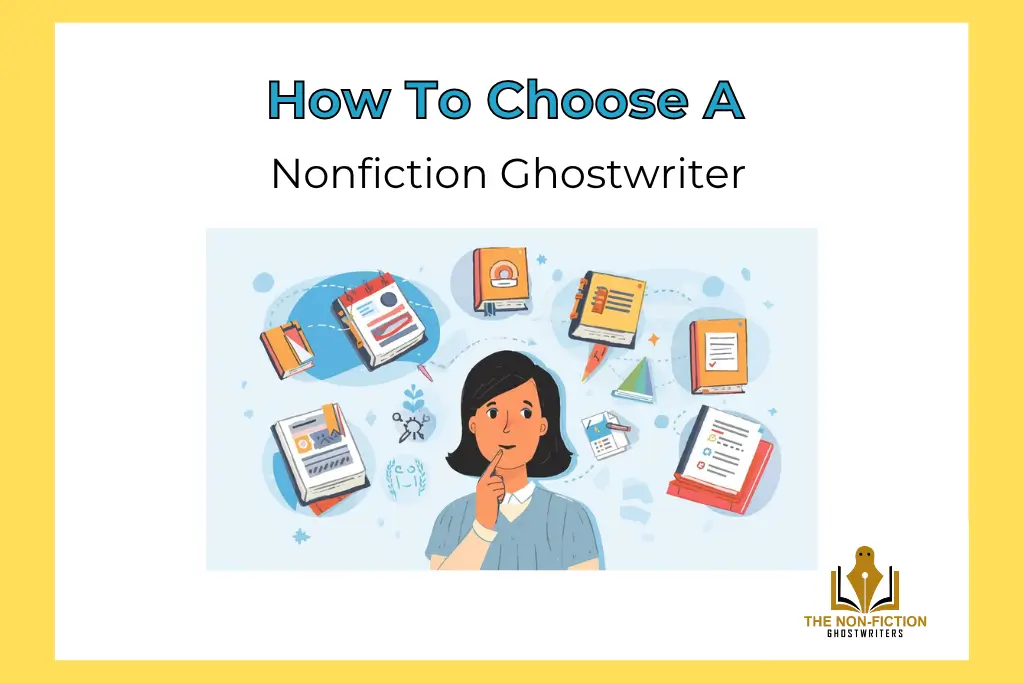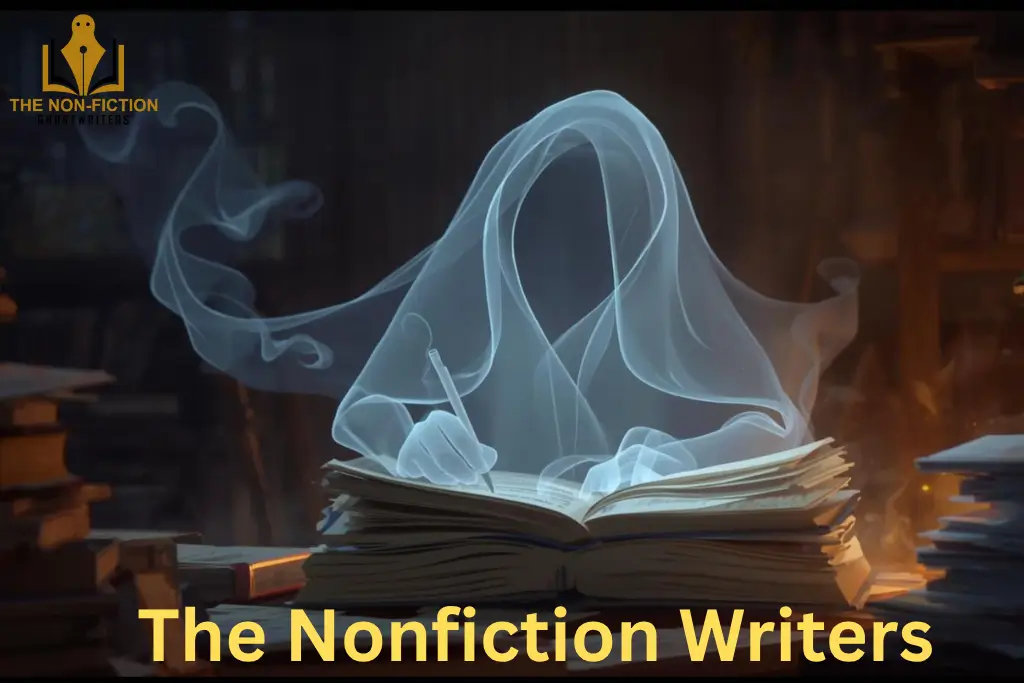
When it comes to writing a book, many people get confused about the difference between fiction and nonfiction. While both types of writing can be compelling, they serve very different purposes and require distinct approaches—especially when it comes to ghostwriting.
Ghostwriting is the art of professionally writing a book, article, or other content on behalf of someone else. In the context of books, it allows individuals with ideas, expertise, or personal stories to transform those thoughts into a polished, market-ready manuscript.
In this guide, we’ll explore fiction vs nonfiction ghostwriting, what makes nonfiction ghostwriting unique, and why hiring a professional can be the best decision for your book project. You’ll also learn the nuances of nonfiction, including creative nonfiction, narrative nonfiction, and literary nonfiction, so you can make an informed choice for your next project.
By the end of this article, you’ll have a clear understanding of nonfiction ghostwriting, the difference between fiction and nonfiction, and how professional ghostwriters like us at The Nonfiction Writers can help turn your ideas into reality.
1. Fiction vs Nonfiction: The Basic Difference
Before diving into ghostwriting, it’s essential to understand the distinction between fiction and nonfiction.
Fiction refers to imaginative storytelling. It includes novels, short stories, fantasy, mystery, and other genres that originate from the author’s imagination. Fiction allows the writer to create characters, plotlines, and worlds that are not bound by real events.
Nonfiction, on the other hand, is based on facts, real events, and verifiable information. It aims to educate, inspire, or inform readers about real-life topics. Examples of nonfiction include:
- Memoirs and autobiographies
- Self-help and motivational books
- Historical nonfiction
- Educational guides and textbooks
Nonfiction can also be categorized into different styles, such as creative nonfiction, narrative nonfiction, and literary nonfiction, which combine factual accuracy with compelling storytelling techniques.
Understanding this difference is crucial, especially for anyone looking to hire a ghostwriter. While fiction ghostwriting requires creativity and plot development, nonfiction ghostwriting demands accuracy, credibility, and a deep understanding of the subject matter.
2. Understanding Nonfiction
Nonfiction is a broad genre that covers real events, factual information, and authentic stories. But what exactly is nonfiction?
What is nonfiction?
Nonfiction refers to works that are grounded in reality, written to educate, inform, or inspire readers. It can range from memoirs and biographies to self-help guides and business books. In essence, nonfiction is about truthful storytelling that conveys information clearly and effectively.
Common types of nonfiction include:
- Self-help and motivational books: Guides that teach skills or inspire personal growth.
- Memoirs and autobiographies: Personal stories of lived experiences.
- Educational and scientific texts: Textbooks, research summaries, and professional guides.
- Nonfiction audiobooks: A growing medium for consuming factual content.
- Children and teen nonfiction: Informative books tailored for younger readers.
Each type of nonfiction requires careful research, clarity, and authenticity, which makes nonfiction ghostwriting a specialized skill.
3. Creative Nonfiction and Its Variants
Not all nonfiction is strictly factual or instructional. Some forms of nonfiction use storytelling techniques to engage readers while maintaining factual accuracy.
Creative nonfiction is one such style. It blends literary techniques with real-life events, making the narrative engaging without compromising truthfulness. Examples include memoirs that read like novels or narrative nonfiction that tells history through compelling storytelling.
Narrative nonfiction focuses on a story-driven approach to real events, often with detailed characters, scenes, and dialogue that are accurate yet engaging.
Literary nonfiction combines factual reporting with stylistic prose, appealing to readers who enjoy high-quality writing alongside real information.
These forms of nonfiction are particularly popular in ghostwriting because they allow readers to connect emotionally while still gaining knowledge or insight from the content.
4. Why Fiction and Nonfiction Ghostwriting Differ
Ghostwriting fiction and nonfiction books are two very different endeavors.
Nonfiction ghostwriting requires:
- Accurate research and fact-checking
- Interviews with clients or subject matter experts
- Structured, logical organization
- Writing that preserves the client’s voice and authority
Fiction ghostwriting, by contrast, relies on:
- Creativity and imagination
- Plot and character development
- Flexibility in narrative and style
- Inventing events, characters, and worlds
At The Nonfiction Writers, we focus exclusively on nonfiction book ghostwriting. Our work ensures that your book is credible, professionally written, and aligned with your expertise, unlike fiction ghostwriting, which is centered around creative storytelling.
5. Importance of Hiring a Nonfiction Ghostwriter
Many professionals have brilliant ideas but lack the time, writing skill, or experience to create a full-length nonfiction book. This is where hiring a ghostwriter becomes invaluable.
Benefits of hiring a nonfiction ghostwriter:
- Time-saving: Focus on your career or projects while your book is professionally written.
- Professional polish: Deliver a manuscript with clear structure, proper grammar, and engaging style.
- Credibility: Ghostwriters can enhance your authority in your field.
- Research expertise: Ensure accuracy and thoroughness in your content.
Unlike hiring a fiction ghostwriter, nonfiction ghostwriting demands deep subject knowledge, an understanding of research methods, and the ability to organize complex ideas into accessible content.
6. The Nonfiction Ghostwriting Process
Creating a nonfiction book with a ghostwriter typically involves several steps:
- Idea and Concept Development: Discussion about your book’s goals, audience, and key messages.
- Research and Outline: Comprehensive research and detailed outline creation to structure the manuscript.
- Client Interviews: Deep dives into your knowledge and experiences to capture your voice.
- Writing and Revisions: Drafting the manuscript while incorporating your feedback and preserving your tone.
- Editing and Polishing: Ensuring grammar, style, and readability are professional and consistent.
Ghostwriting may also integrate AI tools (ghostwriter AI) to help with outlining or idea generation, but the human touch remains essential for accuracy, storytelling, and authenticity.
7. Becoming a Ghostwriter for Nonfiction Books
If you’re interested in pursuing ghostwriting, here’s what you need to know:
Skills Required:
- Strong writing and research skills
- Empathy to capture the client’s voice
- Ability to maintain confidentiality and professionalism
Finding Nonfiction Ghostwriting Jobs:
- Freelance platforms such as Upwork and Fiverr
- Specialized agencies
- Networking and client referrals
Challenges and Rewards:
Nonfiction ghostwriting can be demanding, requiring attention to detail and commitment to accuracy. But it’s also highly rewarding, allowing you to help clients share their expertise and stories with the world.
8. Common Questions About Fiction vs Nonfiction Ghostwriting
While some ghostwriters specialize in both, we focus solely on nonfiction book ghostwriting.
Yes. Nonfiction is based on real events, facts, and experiences.
Projects can range from three months to over a year, depending on complexity and length.
Rates vary widely, influenced by experience, project scope, and research required.
Through interviews, drafts, and revisions, a professional ghostwriter ensures the final manuscript reflects your style, tone, and perspective.
9. Why Choose The Nonfiction Writers for Your Book
At The Nonfiction Writers, we specialize in turning nonfiction book ideas into reality. Here’s why our clients trust us:
- I’ve loved reading and writing since childhood and completed my first paid writing task at age seven.
- My professional ghostwriting career began in 2015 while I was in medical school.
- My Doctor of Physical Therapy degree and medical background allow me to write credible self-help nonfiction books across multiple niches.
- Within a year, I earned Top Rated Badges on Fiverr and Upwork, helping hundreds of clients including celebrities, Fortune 500 companies, and self-publishers.
- We focus exclusively on nonfiction book ghostwriting, ensuring your manuscript is accurate, polished, and professional.
If you’re ready to transform your nonfiction book idea into a published work, contact The Nonfiction Writers today.
10. Conclusion
Understanding fiction vs nonfiction ghostwriting is essential for anyone looking to create a book. Nonfiction requires research, credibility, and clarity, while fiction leans heavily on creativity and storytelling. Hiring a professional nonfiction ghostwriter allows you to produce a book that educates, inspires, and reflects your expertise.
For more insight into nonfiction ghostwriting, check out our blog What Is a Ghostwriter to learn how our team can help you achieve your publishing goals.
Your nonfiction book idea deserves to become a reality. Let The Nonfiction Writers guide you every step of the way.



[…] For more insights on effective nonfiction writing, check out our guides on medical ghostwriting and fiction vs nonfiction ghostwriting. […]
[…] how to choose the right ghostwriter for your nonfiction book? You are not […]